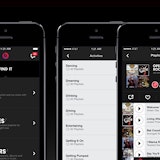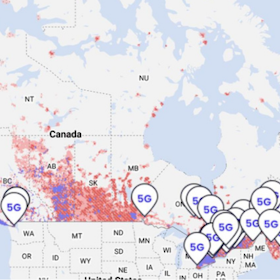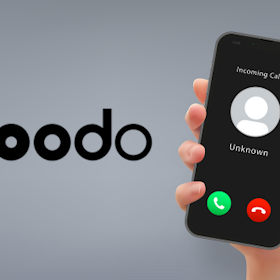
The argument that digitalization is killing the music industry isn’t a new one, but now consistently humorless alt rock icon, Radiohead frontman Thom Yorke, has entered the debate on behalf of musicians themselves.
Yorke has pulled his solo album The Eraser and releases by his side project, Atoms for Peace (with producer and collaborator Nigel Godrich) from Spotify and Rdio.
The move was made to protest the lack of profit seen by artists whose music is streamed via these and similar services.
Like everything nowadays, Yorke’s decision led to a Twitter tirade (and the inevitable backlash), with the frontman tweeting: “Make no mistake new artists you discover on #Spotify will no [sic] get paid. Meanwhile shareholders will shortly be rolling in it. Simples.”
Nigel Godrich also defended the decision on Twitter, stating that the Spotify model is unfair to new music producers and artists - who get paid, in Godrich’s words, ‘f**k all’.
'Small, meaningless rebellion'
However, both Yorke's and Atoms for Peace's albums are apparently still available to stream through Pandora, and can be purchased online via iTunes and Google Play.
None of Radiohead’s music has been pulled from Spotify, although this may be because the band’s record label, and not Yorke, own the rights to each album.
It’s not a surprising move from Yorke – in February he criticized tech companies such as Apple and Google’s attempts to turn songs into commodities, telling The Guardian “…they have made all content, including music and newspapers, worthless in order to make their billions. And this is what we want?”
But it is an interesting turnaround for an artist who struck a blow for the rights to distribute music freely after releasing Radiohead’s In Rainbows over the internet. Radiohead fans could choose to download it for free, or pay a price they considered fair.
While Yorke has said he wouldn’t do the same again with future releases, critics at the time accused him of giving the wrong message that an artist’s music has no value, and the consumer’s right to access art supersedes the right of the artist to be compensated for their work.
Yorke and Godrich aren’t the only musicians to publicly criticize the streaming music model from an artist’s perspective.
Pink Floyd aren’t Pandora’s biggest fans, and have accused the company of attempting to ‘trick artists’ into accepting a huge royalty cut.
Musicians getting screwed over by the industry is nothing new, but if Yorke and co. are to be believed, it's happening on a greater scale than ever before.
While allowing their music to be streamed might be great for an artist's exposure, it won't help them recoup recording costs and actually make a living.
What is streaming music and why does it matter?
Subscription services are the fastest growing area of digital music, making up around 13% of sales worldwide.
Spotify is by far the most popular service, with around 24 million active users across 17 countries, 6 million of whom are paying subscribers.
Spotify supposedly pays between 0.5 and 0.7 cents per stream to artists for each time their songs are played by paid subscribers, but around 90% less for plays by free users.
It also doesn't have a standard rate for all artists in its catalogue - meaning a Top 40 pop star can command a higher percentage of revenue than an indie band on a smaller record label.
Spotify has been quick to defend its business model, claiming to expect to have paid $1 billion in royalties by the end of 2013, and reinforcing their commitment to making Spotify ‘the most artist-friendly' music service possible.
Finding consistent statistics on what artists are really earning from licensing their music to Pandora and Spotify isn’t easy, but the general consensus is ‘not much.’
Musician Damon Krukowski calculated that it would take 312,000 plays of his music on Pandora, and 47.680 on Spotify, for his band to earn the amount of song writing royalties that they would receive from one LP sale.
Pandora states that it pays over 800 of the artists it licenses more than $50,000 annually in royalties - but compared to the amount of acts the streaming service plays, this is a small percentage.
Image credit: mcmortygreen via Flickr
Related Articles
Related Topics
Spotify Pandora Rdio streaming music digital mediaPopular Topics
Android Apple iPhone Samsung Google iOS Cell phone plans Rogers Telus BellFind Better Phones and Plans
Hundreds of cell phone plans unpacked. All the facts. No surprises.


























.jpg?w=280&h=280&usm=20&usmrad=0.8&fit=crop)








